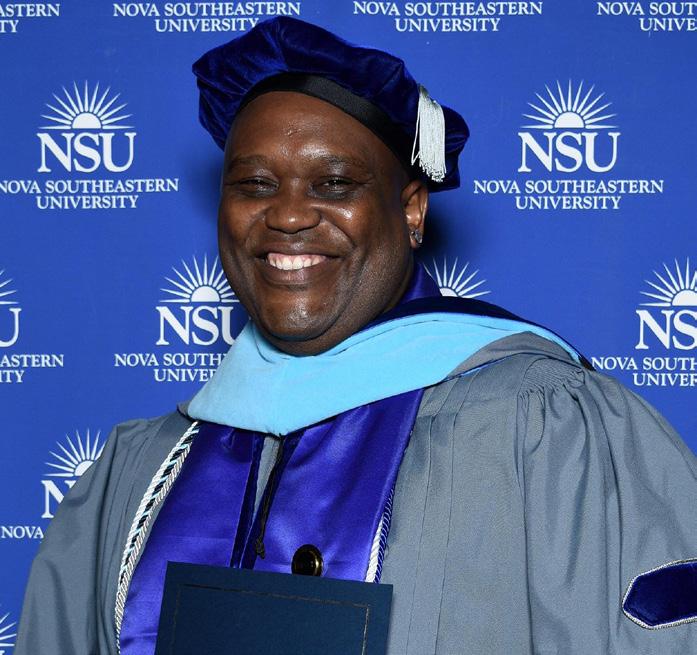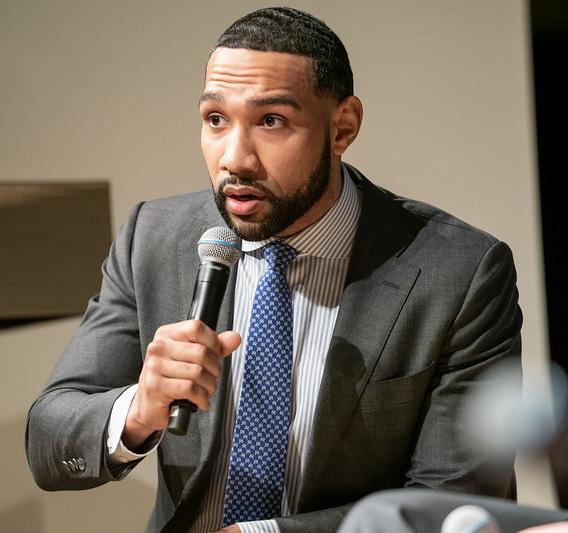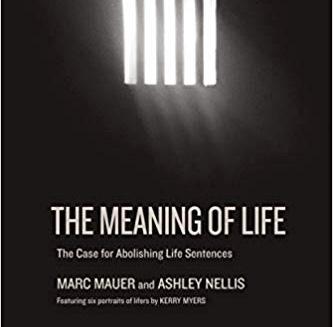
5 minute read
5 EYE ON FORTUNE Key Events in 2019
EILEEN KOBRIN RICHARD LOUIS DYJUAN TATRO


Did they give a firm handshake?
Are they speaking with confidence?
These are just a few questions that Eileen Kobrin, a volunteer at The Fortune Society, asks herself when conducting simulation interviews with clients. Through Fortune’s Mock Interview Project, hundreds of participants have successfully navigated one of the most daunting steps of the employment process: the interview.
“The whole idea is for the clients to develop a rapport with the interviewer…” says Eileen. “We encourage them…to develop some kind of a relationship, to smile.”
The Mock Interview Project is a game-changer because participants learn to develop a story of their skills and build inner confidence—so that when the real interviews come along, they are prepared.
Just as Fortune clients have learned lifelong skills from Eileen, they have also inspired her.
“I stand in awe of these men and women who’ve got everything going against them…” she said. “And yet... They’re not giving up.” Have you ever been convicted of a crime? – This is a question that many individuals with justiceinvolvement such as Dr. Richard Louis encounter throughout their lives. Although unavoidable, he respondstoitwith confidence, thanks to his experience as a client and staff member at Fortune. Here, helearned to address the questionopenly, and discovered the innerresilience to live on his own terms.
At Fortune, Dr. Louis learned to answer the conviction question by highlighting his accomplishments and conveying that his prison sentence does not define him.
Dr. Louis went on to earn a doctorate degree inEducation forOrganizational Leadership and now works at Broward College as the Associate Dean of StudentAffairs, where he established a scholarship for students with incarcerated parents. He continues to live life to the fullest, unashamed of his past mistakes.
“…I have the confidence to live in the world on my terms and have the world see me, and not just a conviction,” he said.
At the age of 19, Dyjuan Tatro was serving a 14-year prison sentence when he came across a transformative opportunity at Eastern Correctional Facility—a program called the Bard Prison Initiative (BPI), which would allow him to pursue a college education in prison. Dyjuan immediately enrolled—a decision that equipped him with a new mindset.
Now a Board Member at The Fortune Society and Government Affairs Officer at BPI, Dyjuan was recently featured in the PBS documentary College Behind Bars.
“Education...allowed me to…situate myself better in the world,” he said.
Dyjuan majored in math, completed a project on cancer cell proliferation, and took stimulating courses that gave him new ways of thinking.
Today, he advocates for the rights of incarcerated people as a Fortune board member, where he is especially focused on supporting criminal justice policies related to housing and LGBTQ issues.
“I think everything Fortune is doing around housing is amazing...” he said. “Those are broad policy issues that take time…”
By Marc Mauer and Ashley Nellis Review by Christopher Santiago
More than 200,000 people are serving life sentences in the United States. That’s more lifers than in any other country, and despite declining crime rates, their number is growing.
In “The Meaning of Life: The Case for Abolishing Life Sentences” (2018), Marc Mauer and Ashley Nellis of The Sentencing Project succeed in drawing from a wide range of sources and plenty of evidence to make their case against life imprisonment. They explain how life sentences conflict with human rights norms, contradict the principles of rehabilitation, contribute to mass incarceration, and result in diminishing returns for public safety as prisoners “age out” of criminal behaviors. Life sentences disproportionately affect vulnerable populations and people of color while having little or no deterrent effect on crime.
The book provides a roadmap for research-based criminal justice reform and policy recommendations at a time when there is bipartisan support for decarceration in America. To lay the groundwork for a realistic challenge to mass incarceration and to provide a better approach to public safety, the authors write, “sentences in American prisons should be capped at a maximum of twenty years, except in circumstances in which the individual still presents a clear threat to public safety.”
Mauer and Nellis thoroughly debunk the notion that life sentences are an alternative to the death penalty. They show that life imprisonment is a more protracted form of the death penalty with less procedural safeguards and public scrutiny. At the top of the sentencing scale, life sentences exert upward pressure on the severity of all other sentences, resulting in longer prison terms that distort how criminal justice resources are allocated. Aging prisoners cost twice as much as younger prisoners to house and are far less likely to reoffend. If those funds were reallocated to reentry services, education, employment, housing, and substance abuse treatment in underresourced neighborhoods, the book argues, they would produce better outcomes for public safety.
Spread throughout the book are six profiles of lifers written by awardwinning author and former lifer Kerry Myers. It’s hard to read the profiles without pangs of sympathy for these six people. Lifers are condemned to live in hopelessness and despair, with little reason to pursue an education or refrain from violence. But these stories reveal, again and again, that humans have the capacity for positive change and personal transformation. They deserve a chance at redemption.
“It is long past time to join the rest of the democratic world by scaling down the excessive nature of punishment that has become the hallmark of mass incarceration.” It’s time to end life imprisonment. For more information, visit endlifeimprisonment.org.
Christopher Santiago is serving a lifewithout-parole sentence in the South Carolina Deptartment of Corrections. Christopher Santiago #304243, F2-136 Kirkland Correctional Institution 4344 Broad River Rd. Columbia, SC 29210
I WILL … MORE

I will smile more I will listen more I will be more polite I will share more I will be more I will care more I will walk and enjoy more I will Love more I will pray more I will be Happy more
I will try more harder I will learn more I will give more I will be kind more I will talk less, not more I will see more I will do more I will laugh more I will dream more I will celebrate our Lord more
I will say please, more I will say thank you, more I will teach more I will exercise more I will help more I will clean more I will talk up more I will leave more I will keep better time more I will not, say much more I will believe and trust in Him more Truly God be the Glory Edgar Singleton Indiana State Prison 1 Park Row Michigan City, IN 46360







